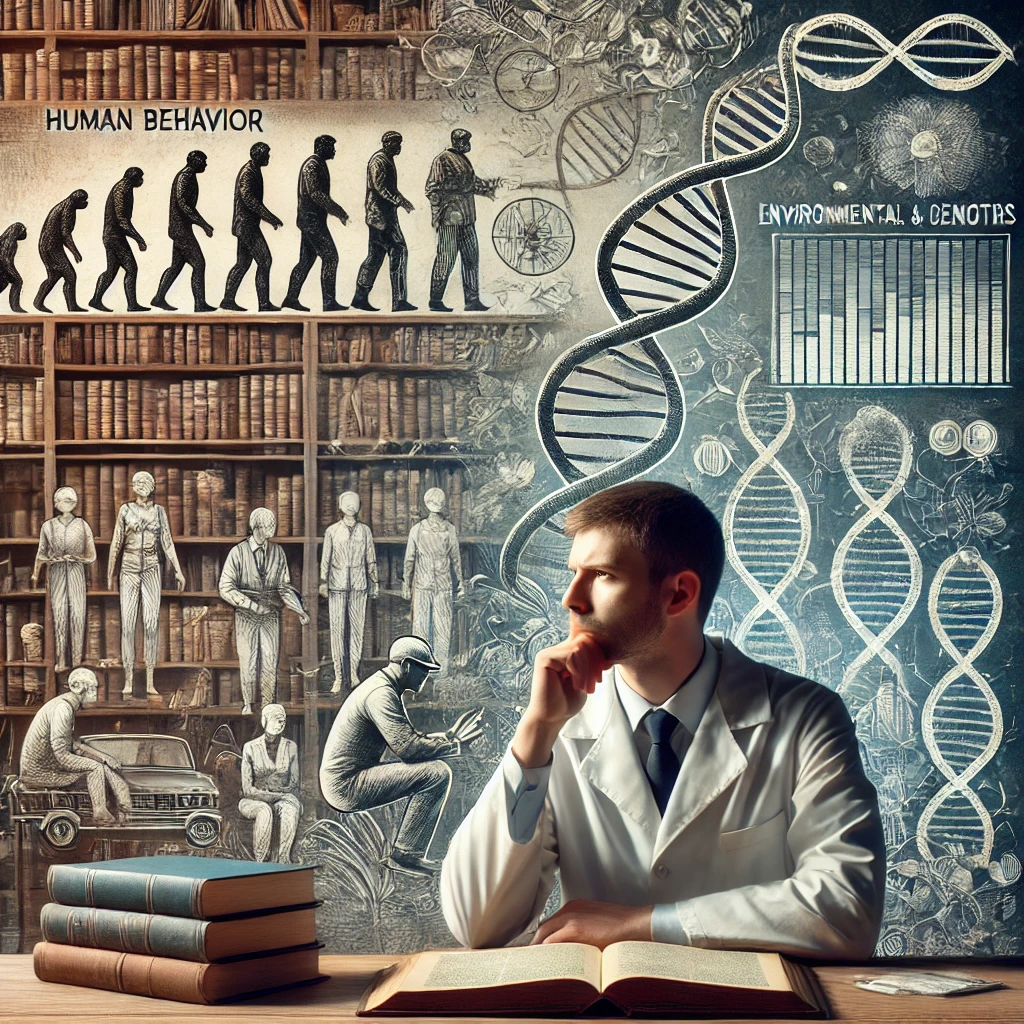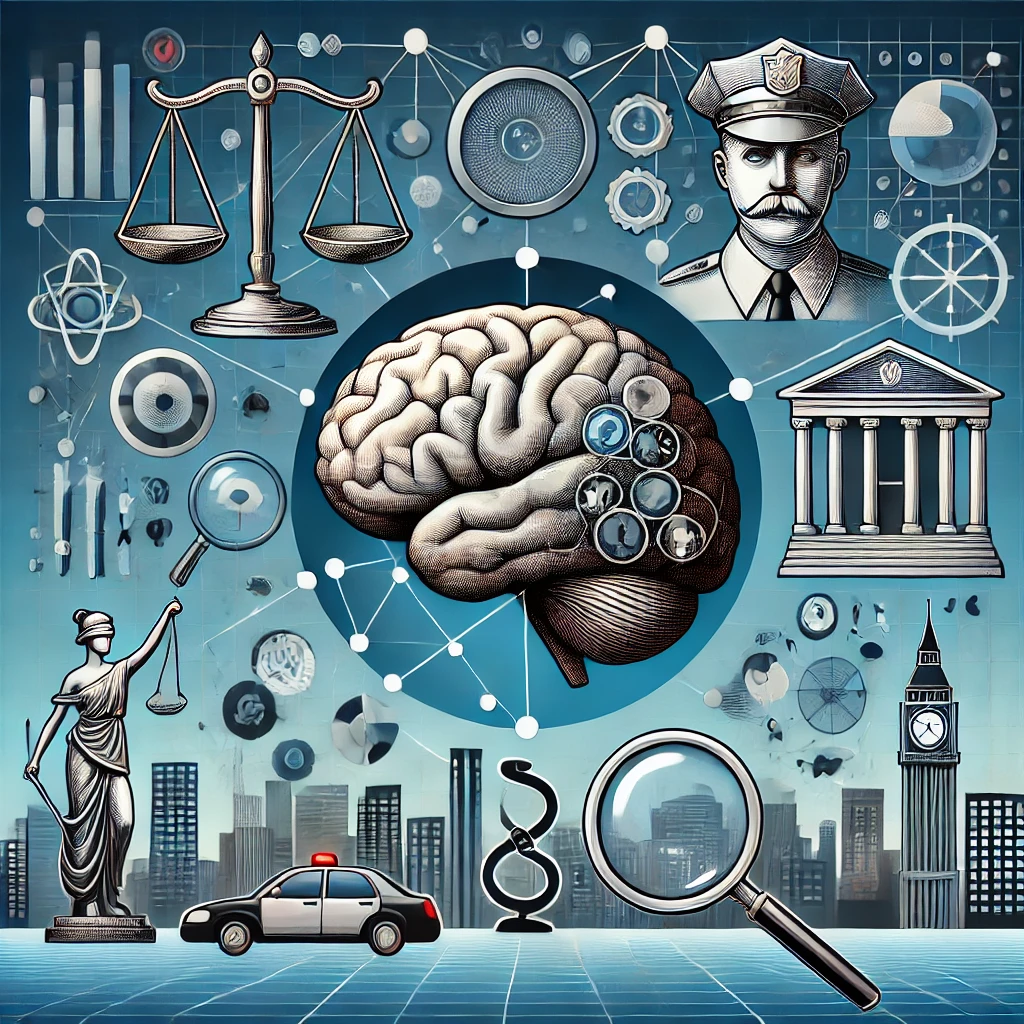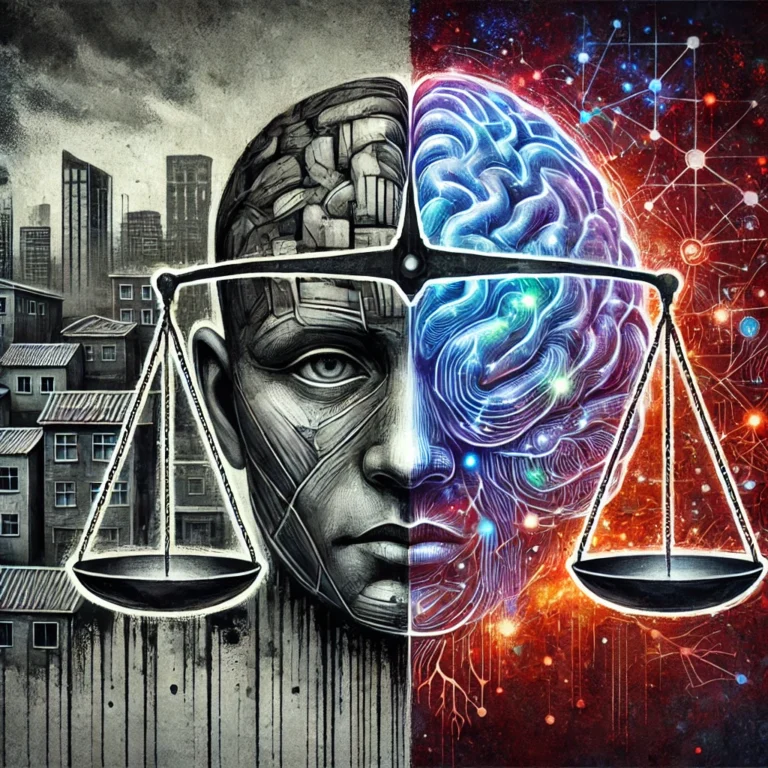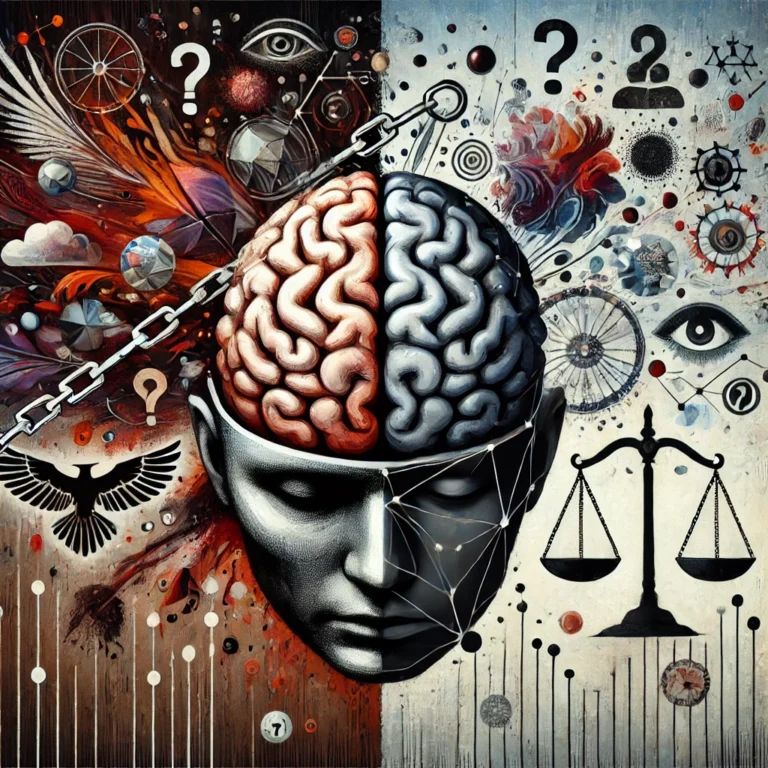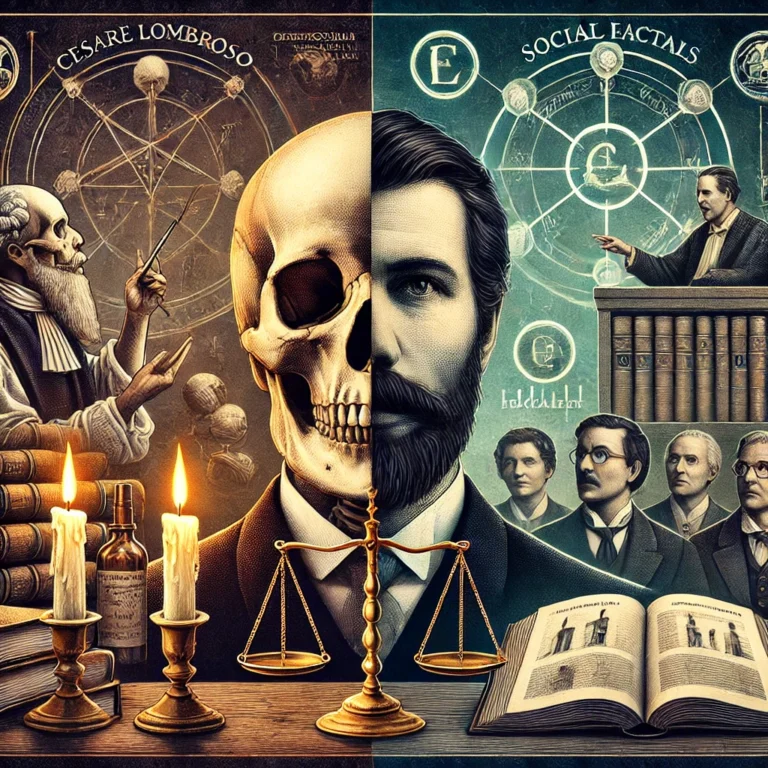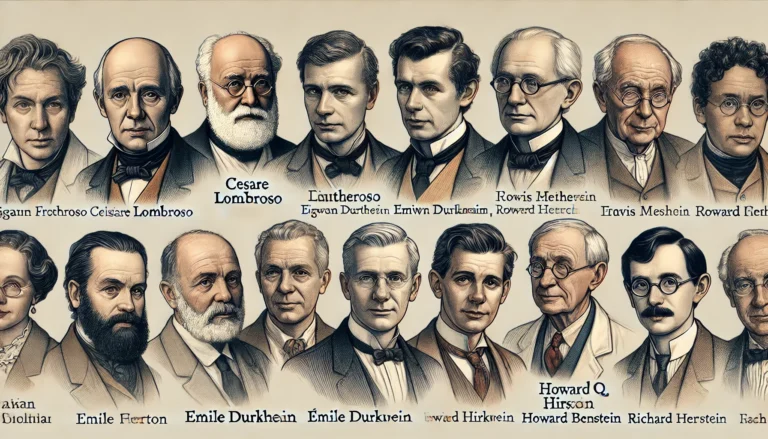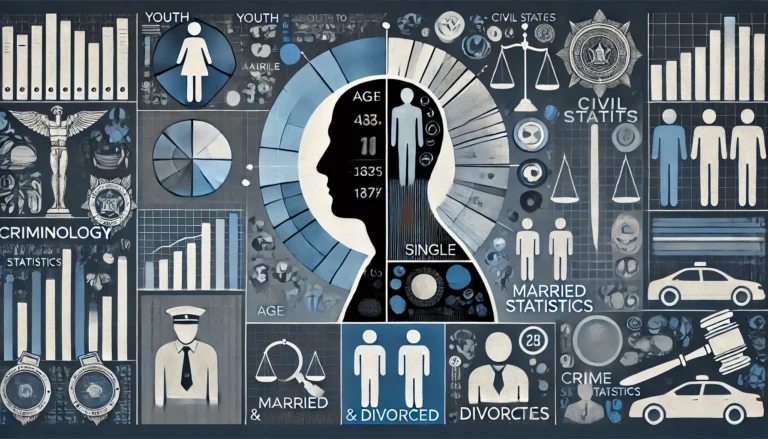Criminal Behavior Theories : In criminology
Understanding criminal behavior has long been a focus of criminologists, psychologists, and sociologists. Theories about why individuals commit crimes aim to explain the underlying factors contributing to unlawful actions. These theories are often categorized into biological, psychological, and sociological perspectives, each offering unique insights into the nature of crime and its causes.
Biological Theories
Biological theories of criminal behavior focus on the genetic, neurological, and physiological factors that may predispose individuals to commit crimes. These theories suggest that certain biological traits or abnormalities can influence a person’s likelihood of engaging in criminal activity.
Cesare Lombroso’s Theory
Cesare Lombroso, often regarded as the father of criminology, proposed that criminals possess atavistic traits—primitive physical characteristics that distinguish them from non-criminals. According to Lombroso, these traits are inherited and make individuals more prone to deviant behavior.
Modern Biological Perspectives
Modern research has shifted from Lombroso’s deterministic views to more nuanced understandings. Studies on genetics and crime have identified certain genes, such as MAOA (sometimes called the “warrior gene”), that may influence aggression. Neurological studies also link brain abnormalities, such as damage to the prefrontal cortex, with impulsive and violent behavior.
Criticism of Biological Theories
Biological theories have faced criticism for oversimplifying the complex nature of criminal behavior. Critics argue that focusing solely on biology neglects social, environmental, and psychological factors that significantly impact behavior.
Psychological Theories
Psychological theories emphasize individual mental processes and emotional states. They explore how personality traits, cognitive development, and emotional regulation influence criminal behavior.
Freud’s Psychoanalytic Theory
Sigmund Freud’s psychoanalytic theory suggests that unresolved unconscious conflicts from childhood can lead to deviant behavior. According to Freud, an imbalance between the id (primitive desires), ego (rational self), and superego (moral conscience) can result in criminal tendencies.
Behavioral Theories
Behavioral theories, such as those proposed by B.F. Skinner, assert that criminal behavior is learned through reinforcement and punishment. If an individual receives rewards or avoids consequences for deviant actions, they are more likely to repeat such behavior.
Cognitive Theories
Cognitive theories examine how individuals process information and make decisions. Criminals may have cognitive distortions, such as justifying harmful actions or minimizing the consequences of their behavior.
Criticism of Psychological Theories
Psychological theories are often criticized for their focus on individual factors, which may not fully account for the social and environmental influences on behavior.
Sociological Theories
Sociological theories highlight the role of social structures, cultural norms, and environmental factors in shaping criminal behavior. These theories argue that crime is not merely an individual choice but a product of societal conditions.
Strain Theory
Proposed by Robert Merton, strain theory suggests that crime occurs when there is a disconnect between societal goals and the means available to achieve them. For example, individuals who lack legitimate opportunities may turn to crime to achieve financial success.
Social Learning Theory
Social learning theory, developed by Albert Bandura, emphasizes the role of observation and imitation. People learn criminal behavior by observing others, especially if those behaviors are rewarded or normalized within their social circles.
Labeling Theory
Labeling theory examines how being labeled as a “criminal” can reinforce deviant behavior. When individuals are stigmatized by society, they may internalize the label and continue engaging in criminal activities.
Criticism of Sociological Theories
While sociological theories effectively address environmental and cultural influences, critics argue that they may downplay individual responsibility and biological factors.
Integrative Approaches
Modern criminology often adopts integrative approaches, combining elements of biological, psychological, and sociological theories. These multidisciplinary frameworks recognize that criminal behavior results from a complex interplay of factors, including genetics, upbringing, and societal context.
Conclusion
Theories of criminal behavior provide valuable frameworks for understanding the root causes of crime. By exploring biological, psychological, and sociological perspectives, researchers and policymakers can develop more effective prevention and intervention strategies. While no single theory can fully explain criminal behavior, an integrative approach offers the most comprehensive understanding of this multifaceted phenomenon.
Which criminal behavior theory do you find most compelling? Share your thoughts below!

